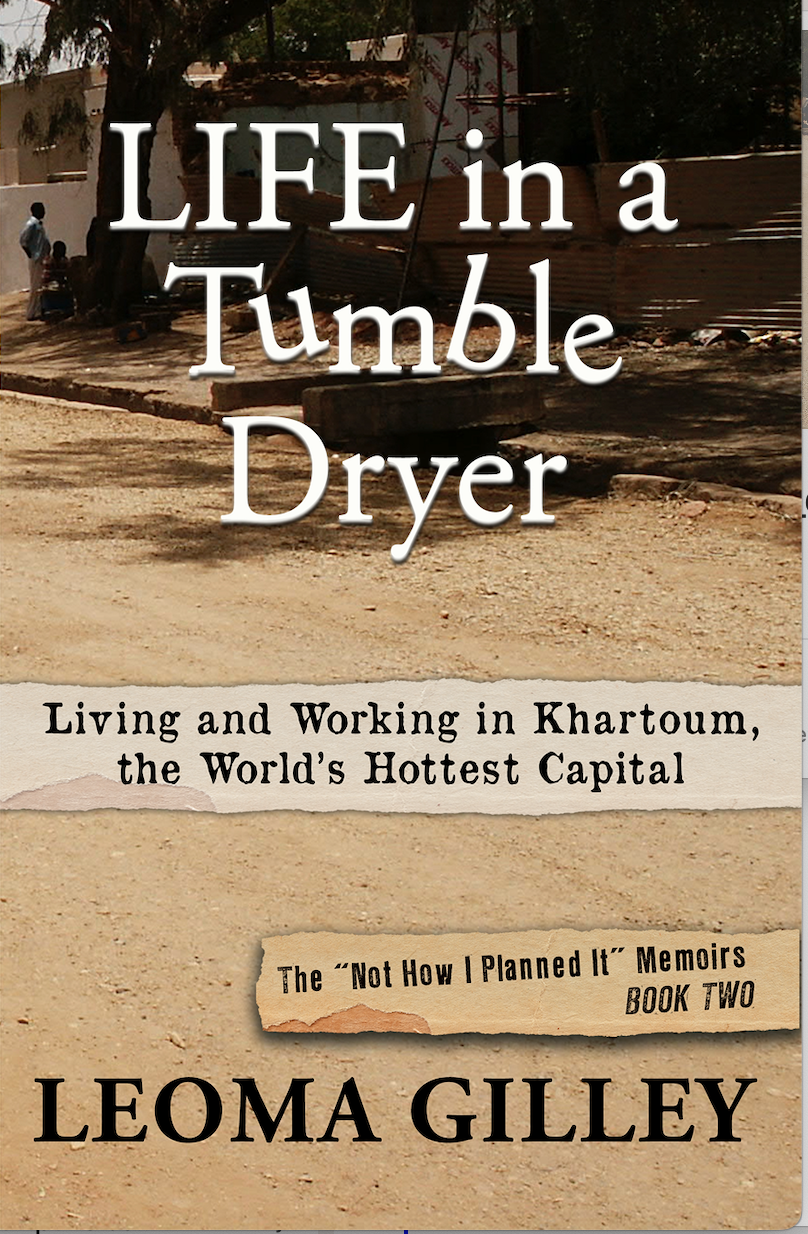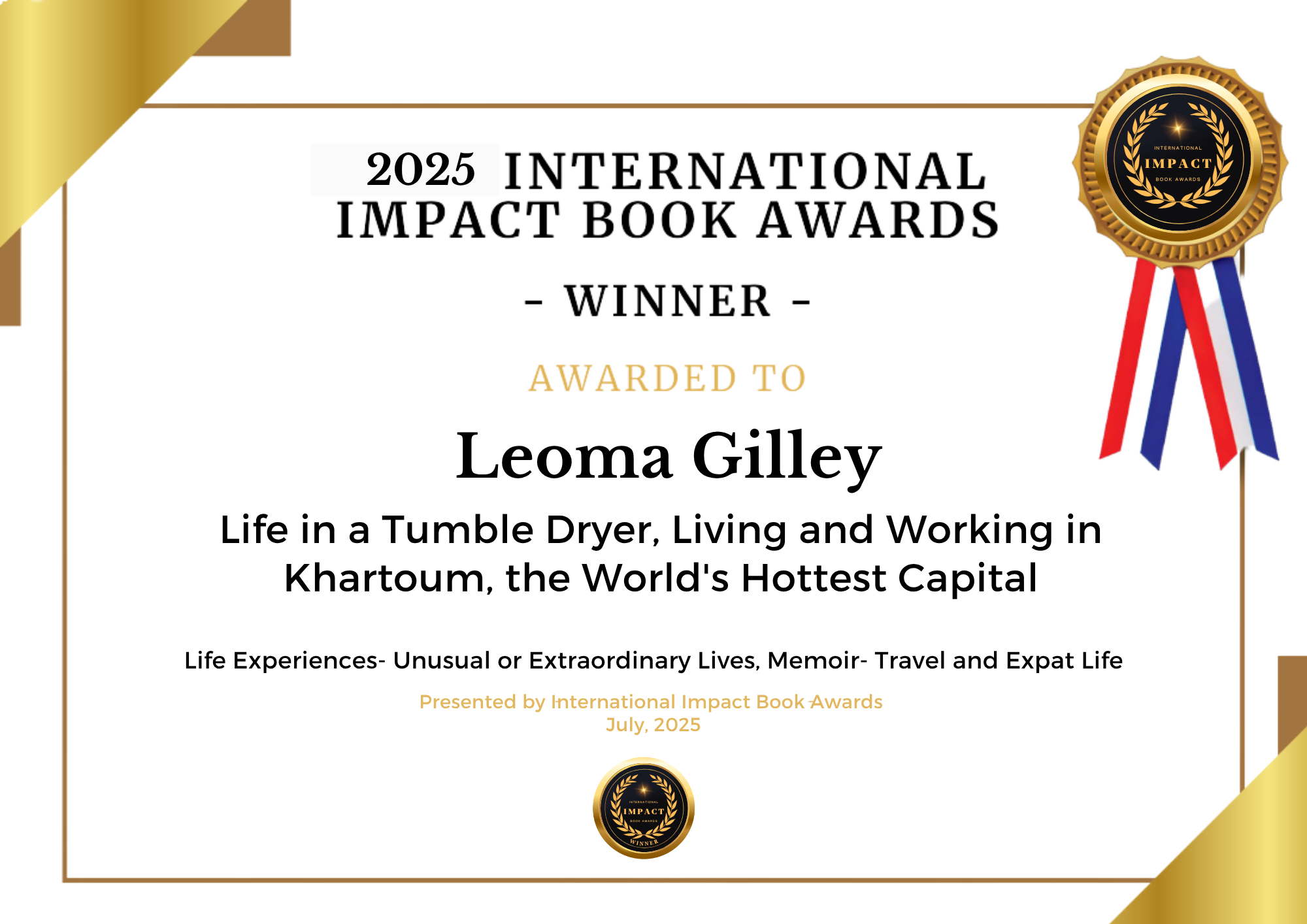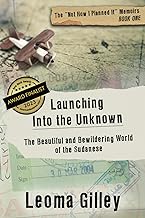Life in a Tumble Dryer, Living and working in Khartoum, the world's hottest capital.








Life in a Tumble Dryer, Living and Working in Khartoum, the World’s Hottest Capital
(Book 2 of the Not How I Planned It memoir series)
ISBN (paperback): 978-1-961347-93-9
Library of Congress Control Number: applied for
SAN # 991-6032
Price: $19.95
Publisher: Peak Press, GracePoint Publishing
Release Date: December 13, 2024
Trim Size: 6 x 0.6 x 9 inches
Page count: 302
Available through Ingram Spark with the full trade discount and returnable. or
orders@GracePointPublishing.com
Author: Leoma Gilley
Editorial Review:
Life in a Tumble Dryer is Leoma Gilley’s vivid and deeply personal memoir of her years living and working in Khartoum, Sudan, specifically the sweltering, dust-choked, unpredictable chaos of everyday life in the world's hottest capital. The book is structured around letters to her cousin Harriet and weaves together tales of linguistic research, cultural missteps, bureaucratic wrangling, unexpected friendships, and survival tactics in a place where the electricity vanishes with the heat and dust storms sneak up like petty thieves.
What really stuck with me from the start was how sharply Leoma captures the absurdity and humor of adapting to a totally different way of life. Her story about arriving in Khartoum with 256 kilograms of luggage, complete with solar panels, books, and fans, only to be delayed by a flat tire on the tarmac at 3 a.m. is a peak travel nightmare. But she tells it with a wink and grit that made me laugh out loud. Even funnier, she ends up in the wrong airport queue behind Orthodox Jews boarding an El Al flight, while she's bound for Sudan, one of those “what even is my life” moments you just can’t make up.
But the memoir isn’t all quirky misadventures. What’s most powerful is the subtle unraveling of her own assumptions. Leoma is honest about her initial sense of control and expertise, especially when it comes to linguistics. But then, in a scene that humbled even me as a reader, she recalls how a colleague gently reminded her that it’s not her job to decide for people what their language or culture should look like. “It is their language and thus their decision,” she’s told. That moment comes back again and again, and it’s the soul of the book. She’s not there to fix anything; she’s there to walk alongside. That shift in mindset is deeply moving, especially when so many “aid” narratives fall into the trap of saviorism.
The book is more a series of letters and anecdotes than a tightly plotted memoir, so it’s best to read it slowly, maybe a chapter at a time. Still, that format is part of its charm. The chapter where she writes a parody song called “The Yellar Dust of Khartoum” had me wheezing, especially the line: “Your oily skin is daily dried by that abrasive touch, but one good thing about it, it doesn’t cost that much.” There’s something about surviving in a brutal climate with nothing but a fan, peanut butter on sour crepes, and a sense of humor that made me love this book all the more.
By the end, I felt like I knew Khartoum, its smells, its setbacks, its kindnesses, and I admired Leoma not just for what she did there, but how she let herself be changed by the place. Life in a Tumble Dryer is perfect for readers who love honest travel writing, especially memoirs with heart, humor, and a dose of humility. If you’ve ever tried to make a home somewhere wildly unfamiliar or wondered what it would take, this book is for you.
Rating: 5 Stars
Literary Titan
Also available as...

Blog Categories
You can read it in a flipbook. Just sign up for my monthly newsletter.
Inside and Out Newsletter
Sign up for monthly news and to receive a flipbook story about life in England.
Thank you!
You have successfully joined our subscriber list.







